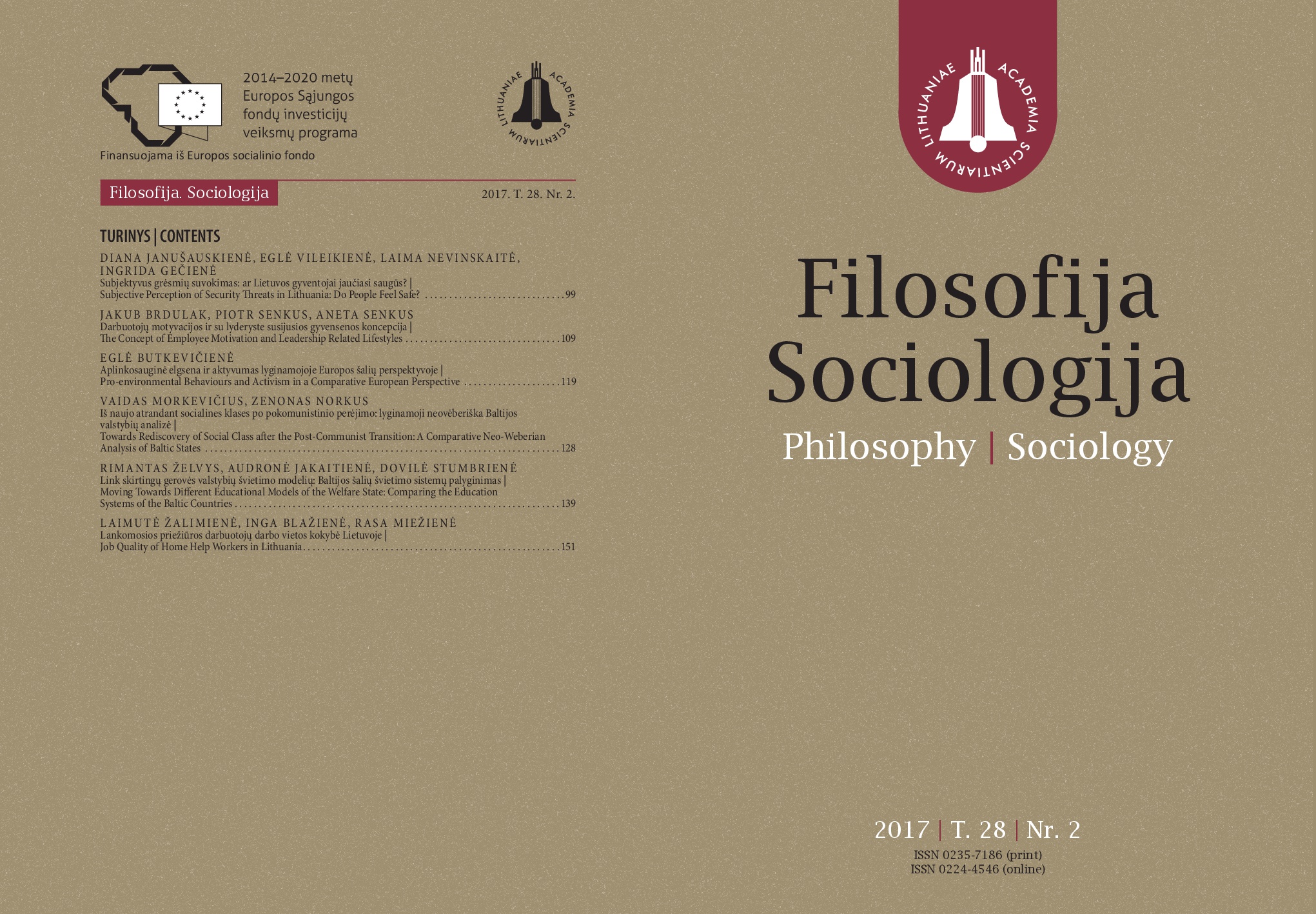Towards Rediscovery of Social Class after the Post-Communist Transition: A Comparative Neo-Weberian Analysis of Baltic States
Towards Rediscovery of Social Class after the Post-Communist Transition: A Comparative Neo-Weberian Analysis of Baltic States
Author(s): Vaidas Morkevičius, Zenonas NorkusSubject(s): Public Administration, Government/Political systems, Social differentiation, Social Theory, Transformation Period (1990 - 2010), Post-Communist Transformation, Financial Markets, Socio-Economic Research
Published by: Lietuvos mokslų akademijos leidykla
Keywords: Neo-Weberian class theory; EGP class schema; life chances; class inequality; class voting; correspondence analysis;
Summary/Abstract: Class effects in Estonia, Finland, Latvia and Lithuania are compared in the framework of the Neo-Weberian social class theory (EGP class schema), using European Social Survey (ESS) Round 4 (2008–2010) data, just at the time when Estonia, Latvia and Lithuania completed their transition to market economy and liberal democracy. Finland, perceived in the post-communist Baltic countries as a model or a “real utopia” state, is used as benchmark for a comparative estimation of the strength of class effects. The main findings of the statistical correspondence analysis are the following: (1) Class inequality of life chances is more pronounced in the post-communist Baltics than in Finland; (2) Paradoxically, class effects on ideological orientations and party voting are more prominent in Finland, where class inequality is less pronounced.
Journal: Filosofija. Sociologija
- Issue Year: 2017
- Issue No: 2
- Page Range: 128-138
- Page Count: 11
- Language: English

